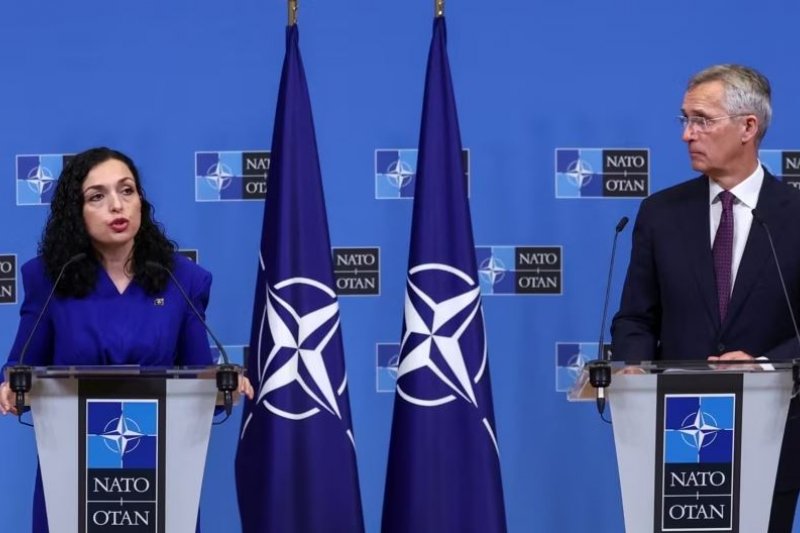It's Essential to Avoid Further Escalation in Kosovo; NATO Chief
The Secretary General of NATO, Jens Stoltenberg, said on Thursday that for the North-Atlantic alliance it is essential to avoid further escalation in the north of Kosovo.
"I call on all parties to avoid inciting rhetoric and to refrain, in line with their commitments".
He made these statements in a press conference together with the president of Kosovo, Vjosa Osmani.
Stoltenberg has said that the violence against the members of the NATO mission in Kosovo, KFOR in the north of Kosovo, months ago, was unacceptable. According to him, the stability of the region depends on all parties.
He has welcomed the decision of the Kosovo authorities to reduce the police presence in the north and the plans to hold new elections in that part of the country.
"In accordance with the commitments of Pristina in 2013, any engagement of Kosovo's security forces in the north requires negotiation with KFOR. We expect consultations for every action of the Kosovo police forces that may have an impact on security".
He mentioned that after the recent unrest in the north, NATO has increased its presence in Kosovo.
"KFOR continues to monitor the situation closely and we are ready to act if required to fulfil the mandate of the United Nations, to guarantee a safe environment and freedom of movement for all communities in Kosovo."
The President of Kosovo, Vjosa Osmani, has said that Kosovo and the Balkan region are in danger of becoming points of unrest due to the influence of the Russian influence and its destabilizing agendas.
"Kosovo is experiencing constant interference from outside and constant obstruction of its legitimate authority and sovereignty in the northern part of our country. This has in many cases constituted aggression, as defined in international law and practice. Let me be clear: the northern part has been and will continue to be an integral part of the Republic of Kosovo".
Osmani has also condemned the violence against KFOR officials in the north, saying that if those responsible for these events are not punished, "there is a risk that the perpetrators will see this as our common weakness", adding that they may repeat acts of violence.
According to her, the events of May 29 constitute an "attack on NATO", and she said that Kosovo is ready to cooperate so that the perpetrators are brought to justice.
Since tensions rose at the end of May in the north of Kosovo, NATO has continuously called on all factors in the region to refrain from actions that would increase tensions even more and to take steps to calm the situation. The Alliance has also reiterated that it remains committed to ensuring peace and security for everyone in Kosovo through KFOR.
Kosovo, meanwhile, has expressed its ambitions to move towards NATO integration, first through inclusion in the Partnership for Peace Program and then to become a member of the alliance.
However, NATO has emphasized that the acceptance of new members requires the approval of everyone in the Alliance. In NATO, four of the 31 members do not recognize Kosovo's independence, namely Spain, Greece, Romania and Slovakia.
In a debate on Thursday before the European Parliament, Stoltenberg mentioned the importance of cooperation between NATO and the European Union in Kosovo and the Western Balkans.
"We are two different organizations, but we share the same values. Over 600 million Europeans live in NATO member countries. When Sweden becomes a member of the alliance, 96 percent of EU citizens will be in NATO," he said, underlining the increase in cooperation and coordination between NATO and the EU.













